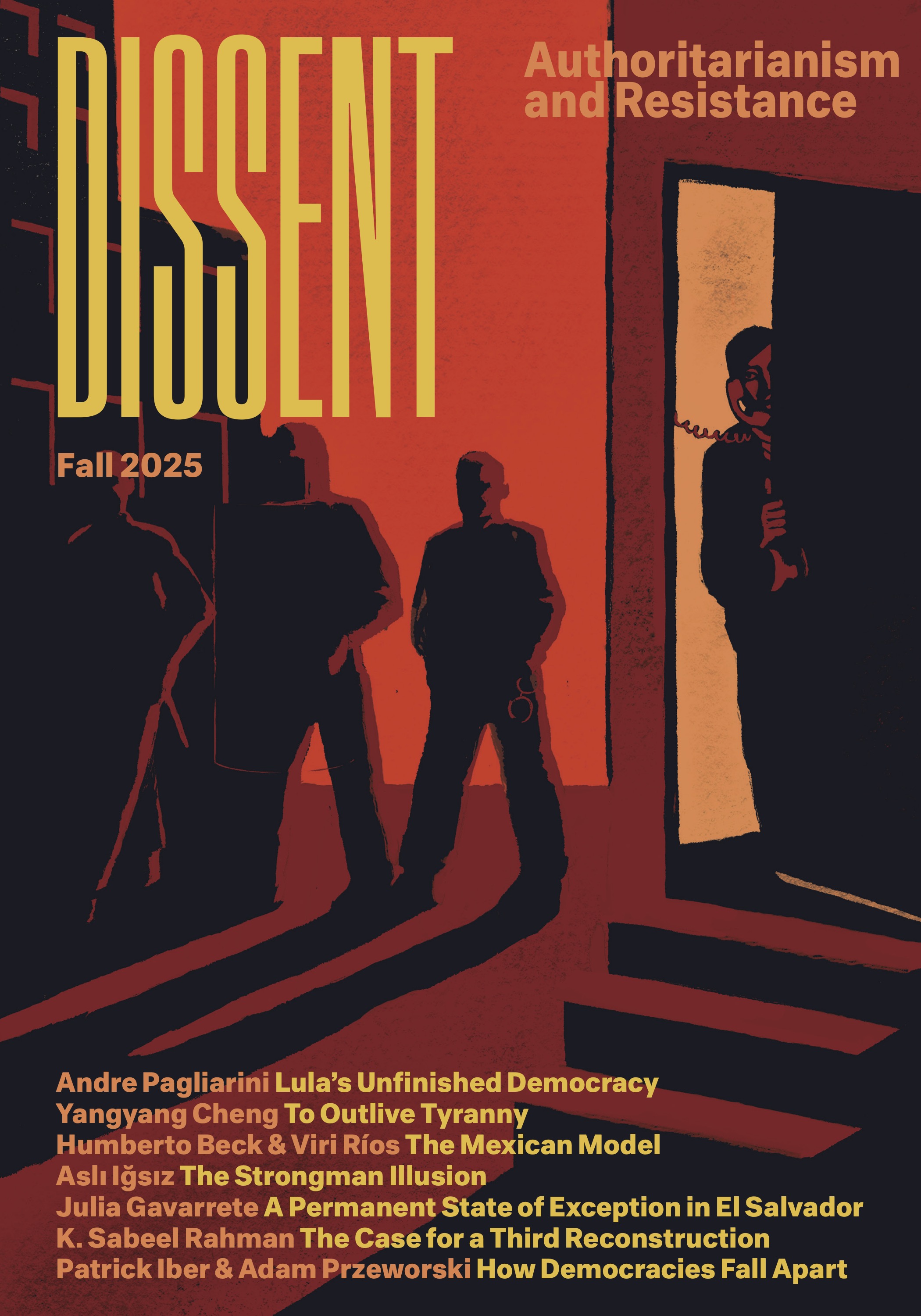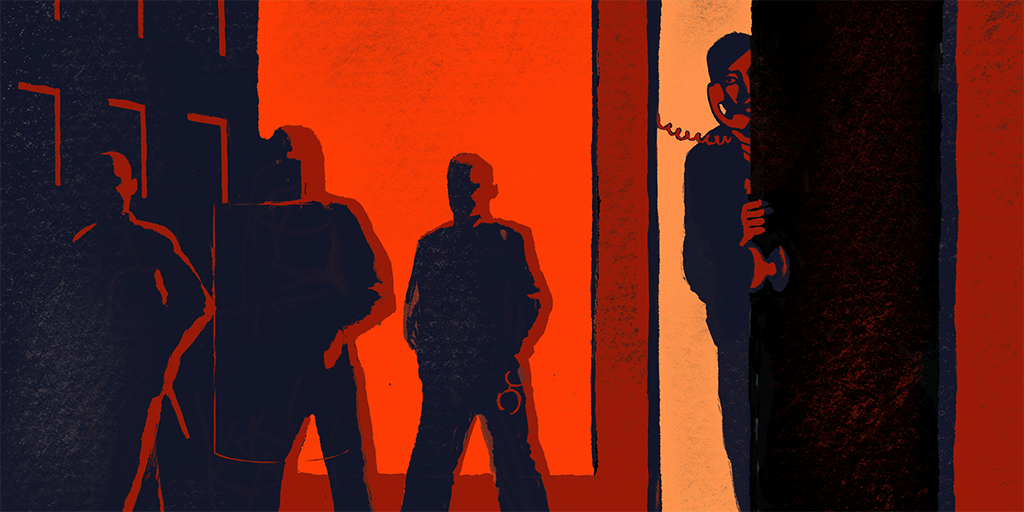Authoritarianism and Resistance
A preview of our Fall 2025 issue.

Our Fall 2025 issue, Authoritarianism and Resistance, launches September 8.
Subscribe now to get the issue.
“How do we know when [democracy] has gone? It’s a difficult question to answer,” co-editor Patrick Iber writes in his introduction. “Summer changes to fall not in a moment on a calendar, but one leaf at a time. In recent years, democracies have been lost in similar fashion: not all at once, but in a slow falling away. This erosion is happening now in the United States.”
The special section features: Andre Pagliarini on Lula’s long fight for democracy in Brazil, Yangyang Cheng on the lost hopes for greater freedoms in China, Humberto Beck and Viri Ríos on how to understand Morena’s ascension in Mexico, Aslı Iğsiz on Erdoğan’s collaborators , Julia Gavarrete on the permanent state of exception in El Salvador, K. Sabeel Rahman on the democratic reconstruction we will need after Trump, and Adam Przeworski on how regimes fall apart.
Also in the issue: Sarah Jones on Thomas Kinkade, S.D. Hodell on Wang Bing, Aziz Rana on “settler colonialism,” J.W. Mason on what Zohran Mamdani can accomplish in New York City, Manuel Pastor on Trump’s Latino supporters, Jedediah Britton-Purdy on ecology and democracy, Sean T. Byrnes on the Brahmin left, Rich Yeselson on the Starbucks organizing model, Suzanne Kahn on rebuilding trust in government, Nicolás Medina Mora on the history of the Americas, Chris Maisano on liberal socialism, Jack Jacobs on Gaza and the legacies of atrocity, and Caitlin Rosenthal on the New History of Capitalism.
Subscribe now to get your copy. If you already subscribe, please consider donating, purchasing a gift subscription, or becoming a solidarity subscriber to help sustain Dissent.
